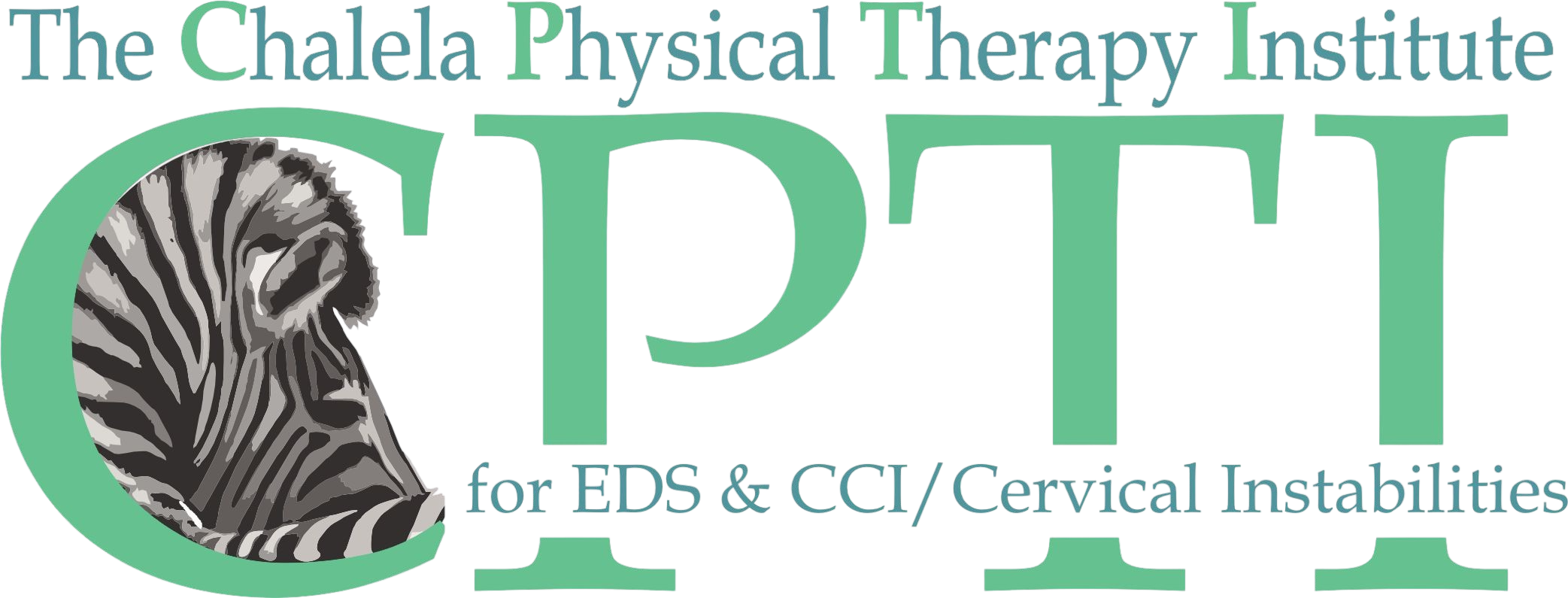
Having EDS means your body works differently.
Shouldn’t your physical therapy work differently too?
At the Chalela Physical Therapy Institute, we approach physical therapy through the lens of neuroplasticity – the brain’s ability to adapt and change throughout life. Using biofeedback, our protocol retrains the brain, allowing our patients to improve faulty proprioception, strengthen deep stabilizers, and learn proper physical alignment.
As patients work with us, they learn to protect not only their joints and ligaments but their neurological and vascular systems as well, leading to improvements in their pain levels, neurological symptoms, and overall functioning.
Physical Therapy
Telehealth
Frequently Asked Questions
For in person treatment, we accept many types of insurance as well as self-pay. Telehealth services are cash pay only to allow us to treat patients regardless of location.
If you are coming in-person, but are not planning to attend regular PT at our clinic, and just need a small number of consultation visits for guidance on EDS or CCI, you will be considered self-pay. Insurance can only be billed for in-person visits if you are consistently coming to the clinic for physical therapy. We cannot provide superbills or any codes for these visits, as they are considered consultations and not physical therapy.
If you would like to know if we accept your insurance, please text or call us at 843-364-3213. If you would like to get on our waitlist, please complete the form on the “Get on the Waitlist” tab.
Our waitlist is several months long. Though it is difficult to give an exact length of time, we are working as hard as we can to provide such essential therapy to as many patients as possible. Head to the “Get on the Waitlist” tab to reserve your spot on the waitlist!
We do have cancellations that occur, and we try our best to get new patients in off of cancellations as well, this may significantly shorten your wait time. Please be aware that due to the volume of patients that are waiting to see us for therapy, we have a very strict cancellation policy.
Our clinic has an equipment list that can be easily ordered online for your personal use at home, to keep up with what you have learned at therapy in-between appointments or during telehealth visits. Once you are a patient and you have learned how to use the equipment, you will be given access to the list for you to order.
Cranio-cervical instability ranges in severity from mild functional disability to life-threatening instability, and the path of treatment is determined in part by the level of symptom severity. Some cases of CCI require surgery to fuse the skull to the top of the spine to eliminate the instability that causes injury to the brainstem. This surgery has a difficult recovery, with possible but rare complications of hardware failure and a new onset of instability in the joints adjacent to the fusion. For patients who require this surgery, it can relieve many symptoms and improve their quality of life, but for most cases of CCI, our specialized physical therapy can provide the same relief without the risk of complications. As a result, many neurosurgeons require the majority of their CCI patients to try PT for a period of time before agreeing to a fusion. In our clinic, we have had great success in preventing the need for cranio-cervical fusions, and for those who have required fusions, PT can help prevent adjacent segmental instability from occurring. Our approach requires you to commit to working the protocol, completing your exercises between sessions, and giving your neck the time it requires to strengthen, so we encourage you to come in with a positive attitude and a willingness to be patient for the results and do your homework in-between sessions!
- If you need to make any changes to your appointment within one week of the scheduled time, there is a $10 fee.
- If you need to change or cancel your appointment within 48 hours, there is a $50 fee.
- Cancellations or no-shows made within 24 hours of your appointment will incur a $125 fee.
We are a specialty practice that only sees patients who have either EDS or CCI, or are hypermobile and need PT for hypermobility-related concerns. If you are in need of regular PT and do not have any of these conditions, please talk to your doctor about where they recommend you recieve treatment for your physical therapy needs.
READY TO TAKE THE NEXT STEP?
What People Are Saying About Chalela PTI




